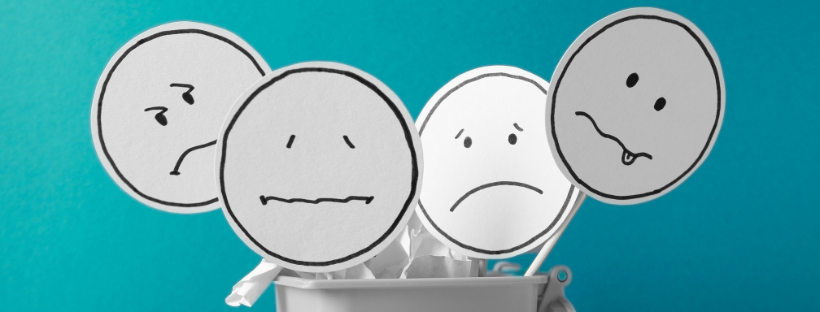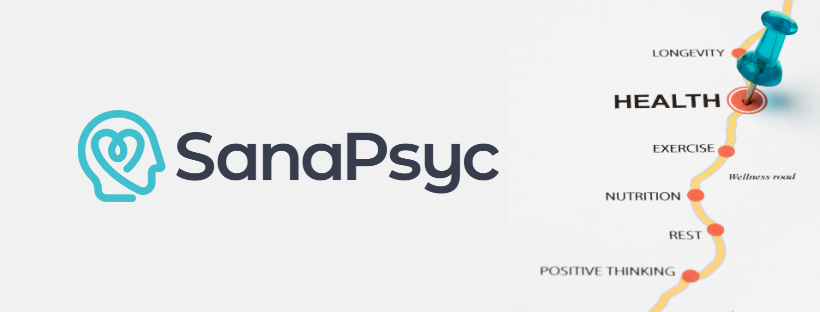January Blues. Blue Monday. We have been hearing about how challenging January is and have a number of associations and theories as to why this is a harder month for people’s mental health. Maybe it is because of the darkness. Maybe it is because of Seasonal Affective Disorder. Maybe it is because of the lack of holiday in January and something to look forward to. Maybe it is due to the crash after the holidays. All of these theories seem to have some element of truth to them and may be contributors to a shift towards more depressed mood and poorer mental health. This can result in an increased need for depression counselling. Calgary, my hometown, is a city that experiences a unique weather system called Chinooks which results in warmer temperatures but this does not seem to be preventative enough with mental health.

One question that is important to ask: Are the January blues even real?
Interestingly, though there has been a rumour that suicide rates are higher in January and highest on something called ‘Blue Monday’, which is the third Monday of January, the truth is that suicide rates are not higher/highest in January and nothing significant changes on the third Monday of the month. Suicide rates actually tend to be highest in late spring/early summer, according to the Centre for Suicide Prevention, though not by much, as the rates stay pretty consistent all year long.
So while the higher suicide rates rumour has been proved to be a myth (and actually just a promotional stunt by travel companies to increase traffic), is there any credence to the idea that moods are lower in January and people have increased rates of depression?
This one is more difficult to analyze scientifically as there have been studies of suicide rates and people impacted by Seasonal Affective Disorder (SAD) but less so about general feelings of being down and blue, which is different than clinical depression.
It is estimated that about 15% of the Canadian population will experience Seasonal Affective Disorder at some time in their lifetime. SAD is a clinical disorder with a specific set of symptoms which mimic depression but are triggered by light levels in the environment and are seasonal, rather than clinical depression which is not tied to seasons. SAD may be part of the reason why some people feel more down and blue in January as this is a dark month, but people with SAD are likely to experience symptoms up to 40% of the year since it is dependent on seasonal patterns that are longer lasting. Depression counselling Calgary sees an increase in traffic during January, as I’m sure it does in other cities in Canada too.
How January Affects People And Why People Seek Out Depression Counselling in Calgary
Anecdotally, I have observed that people are quite distracted, edgy, and focused on holidays and related goals in November and December. Not that this improves or aids mental health in a long-lasting way, but it seems to be a distraction that may cover up some symptoms of being down, sad, lonely, or blue that people may have or other bigger conditions that are going on. In January, there is nowhere left to hide, and people experience a crash where they are now dealing with the emotional aftermath of the holidays, a lack of anything to distract them, and whatever mental health and/or addiction issues had been going on before. This may cause people to seek out depression counselling. Calgary and other cities have a number of providers available.
We can see how this might prove to be a challenging mix for people.
So let us assume, based on our own human experiences, that the January blues are a thing, though not necessarily in any clinical or diagnosable way. What do we do to cope and improve or, at least, maintain our mental health during this time of year?

How to Improve and Maintain Your Mental Health in January with Depression Counselling in Calgary
Here are some tips from our depression counselling Calgary team to help you support yourself and your mental health during January:
Plan A Special Activity for Yourself.
Have an adventure, special outing, or activity that you enjoy or would like to try planned to give yourself something relaxing and rejuvenating to look forward to. Just like in November and December, having something in the calendar when you look ahead can have a positive impact on our mood and mental health. Make sure that the activity is something that is personal and that you want to do, not an obligation or something that adds any fear, stress, or anxiety to the mix. For instance, I’ve booked a gelato making experience for January and am excited to tour a local business, have some fun, and get a sweet treat out of it!
Get Back to Your Self-Care Routine.
With the hullabaloo of the holidays, I find that a lot of people lose connection with the routines that help support their mental health at other times of the year. This may be an exercise, meditation, sleep, nutrition, reading, hygiene, or other routine. Whatever it is, your body and mind were benefiting from it before and will benefit from it again. Depression counselling Calgary may be something you are already engaged in or it could mean engaging in therapy for the first time; either way, this can be part of your self-care routine.
Get Fresh Air.
We hear this one often and all know that fresh air and sunshine are good for us, yet it is easy to feel complacent to stay inside especially when sunshine hours are shorter and temperatures are cooler. To make things a bit easier for yourself, you could plan a walk with someone for accountability, take a short walk around the block, or sit by an open window with the sun on your face. We are aiming for progress, not perfection, when it comes to mental health so be easy on yourself and follow the intuitive path, even if it doesn’t seem like the perfect one. As a bonus, all the vitamins and neurotransmitters that come out of sunshine, fresh air, body movement, as well as social connection offer protection against feelings of depression.
Take a Break from Triggering People.
I believe a big contributor to the January mood slump comes from the societal expectations we have created about family and the holidays. I see people wearing themselves thin with commitments and participation in events that add stress, overwhelm, and sometimes a hearty dose of nervous system activation (aka, triggering) in November and December. It is no wonder that there is a slump afterwards as the body and mind tries to recover. Give yourself permission to say no to that event or invitation and focus on the people and activities that are easier and enriching for you; perhaps January is not the time to continue challenging ourselves out of our comfort zones.
Do Something Summery.
As nice as it would be to take a trip somewhere warm and sunny, this option is not available to everyone. However, doing any of the following may be possible:
- Have a summery smoothie or mocktail while wearing a summery outfit (maybe just raise the heat in the house for a few hours for that one)
- Listen to music that reminds you of summer
- Go to a hot tub, pool, or steam room to catch some heat
- Watch a video, movie, or look at photos that take place in summer
- Do a visualization or guided meditation that focuses on summer weather cues
- Sit by a window in the sun and bathe in it
Prioritize Gratitude.
We have all heard of the benefits of a gratitude practice. It is true that gratitude allows us to focus on the things that are going well and shifts our mindset in a different direction. Even if you are not normally a gratitude practitioner, I would strongly recommend making a point of highlighting 3 things each day that went well and you are grateful for. This encourages your brain to start looking for beauty, wonder, and things that are going well rather than being negative about everything around. For an even bigger brain punch, try writing down your points of gratitude. Read more here about why writing has additional benefits for our brain.
Take a Break.
Plan a special few hours, half day, or even full day for yourself during this month. That gives you something to look forward to as well as a planned rest period. You may find that you want to just curl up with a book and rest during this time, which is great, or you may want to do something special for yourself, which is also great. Just remember that breaks and rest need to feel restorative. If it is more on your to-do list, than pull back and regroup around a true rest and break. You have enough on your plate already and your mental health deserves a recharge, just as your phone gets one regularly.
Have Media Boundaries.
News can be pretty depressing so if you’re already feeling mentally low, consuming regular doses of news and media will exacerbate this and can push our mood over the precarious edge. If you are considering boundaries with media and news but don’t know where to start, here is a blog post about media boundaries and protecting our mental health.
Smile and Laugh.
While it may feel weird to force ourselves to smile and laugh, when we engage in these activities our brain releases tiny molecules called neuropeptides to help fight off stress. Then other neurotransmitters like dopamine, serotonin and endorphins come into play too. The endorphins act as a mild pain reliever and serotonin is a natural anti-depressant (learn more here about the benefits of smiling and laughing). Listen to something funny, put on a funny show, read jokes, humour yourself, smile for 5 minutes per day… However you do it, put a smile on your wonderful face! The natural mood and mental health boost is worth it. Here, we will try and help you out: What’s a New Year’s Resolution? A to-do list for the first week of January! Haha. Our depression counselling Calgary team had some great laughs at our holiday party in December and try to make each other laugh often-it’s a fantastic stress reliever!
Engage in the Anti-Resolution Revolution!
Okay, this may not be a thing beyond my own mind but everything starts somewhere, right? Think of something you resolved to do in the past and decide not to do it! Give yourself permission to release yourself from past shame and the burden of feeling like a failure and, instead, engage in realistic goals when they present themselves and seem feasible rather than forcing them at one time of the year.
Utilizing one, two, or more of these tips may not miraculously boost your mood and mental health to the point that you do not feel any lingering feelings of being down, blue or depressed, but they will help put you on the path to improved mental health and wellbeing. They are designed to be encouragement to meet yourself where you are at, embracing the limitations of resources and season, while still taking care of yourself as best you can.
If you are feeling that you are at risk of hurting yourself or others, please talk to a friend, family member, healthcare provider, or reach out to a local crisis line, urgent care, or emergency department. Mental health tools only work if we are alive, so health and safety are priority number one.
Depression and the January blues can be tough to deal with, but you don’t have to do it alone. Our depression counselling Calgary team is here for you. Contact us today for support you in your mental health journey.
About the Author
Paige Abbott is a Registered Psychologist in Calgary, Alberta and founder of Sana Psychological, a private practice offering support for Mental Health & Addiction issues since 2019. Paige is the co-author of a number of books related to Addiction, including ‘Love, the Drug.’ Her practice has a number of individuals who work within it and all offer depression counselling in Calgary as well as a number of other services.


